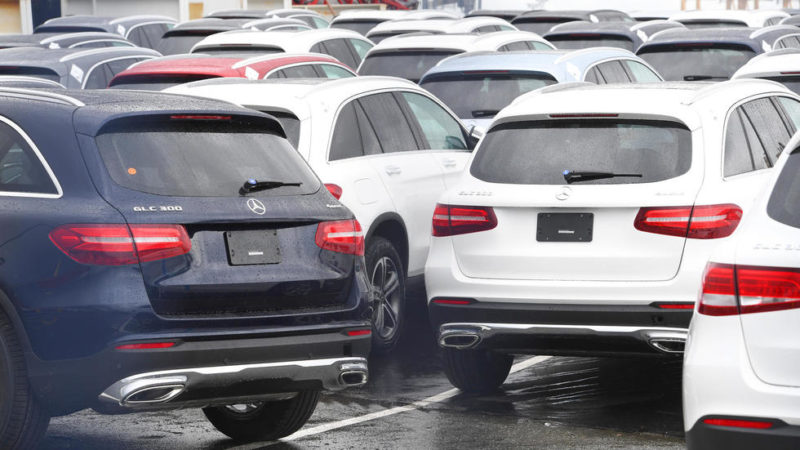BMW in dash for cash as German car sales plummet
The virus has put the brakes on Germany’s car trade (PATRIK STOLLARZ)
Frankfurt am Main (AFP) – BMW is following other German carmakers in pumping up its financial liquidity to ride out the coronavirus crisis, its chief executive said Friday, as car sales in the auto-mad nation booked their steepest plunge in almost 30 years in March.
“Circumstances as serious as this can threaten the existence of even a large company,” BMW boss Oliver Zipse said in an interview circulated to staff.
“We have already introduced large-scale measures, in particular to secure our liquidity,” Zipse added, calling the steps an “absolute priority” but without going into details.
High-end competitor Daimler, which builds Mercedes-Benz cars, said Thursday it had agreed a new 12-billion-euro ($13 billion) credit line with banks, “increasing its financial flexibility”.
A hint at the pressure on carmakers came from Volkswagen boss Herbert Diess last week, when he said virus-imposed shutdowns were costing the sprawling 12-brand giant up to two billion euros per week.
Official data showed new registrations of cars on German roads plunging in March to their lowest in almost three decades.
Sales tumbled 38 percent year-on-year to just over 215,100, according to the KBA vehicle licensing authority.
“Necessary health policy measures, like the massive limits on public life, closure of car dealerships and limited ability to work in the licensing offices” had braked the car trade, the VDA carmakers’ federation said.
Domestic demand fell 30 percent, while foreign orders were down 37 percent.
In a quarterly comparison, sales in January-March were down 20 percent year-on-year.
“April is likely to be even more catastrophic,” analysts from consultancy EY predicted.
– Job fears –
In European virus epicentre Italy, where lockdown restrictions are even harsher, transport ministry figures released Thursday showed sales collapsing by more than 85 percent year-on-year in March.
At just over 28,300 cars registered, Italian sales were “at a level comparable with the early 1960s, when mass car ownership in our country was just getting started,” experts at car industry research centre Promotor commented.
“Forecasts for the coming months call for similar or even worse falls until the crisis is over,” they added.
In Germany, “even if the acute crisis were overcome in summer, the economic and social consequences — massive increase in unemployment, plunges in income, bankruptcies — will continue to squeeze demand strongly,” EY predicted.
Ratings agency Moody’s expects the global auto market to contract 14 percent in 2020.
Up to 100,000 of the roughly 800,000 jobs in Germany’s massive auto sector could be at risk, according to recent estimate from University of St. Gallen expert Ferdinand Dudenhoeffer.
To weather the impact of the coronavirus restrictions, major manufacturers like Volkswagen, Mercedes-Benz parent Daimler and BMW have closed factories and placed tens of thousands of workers on government-funded shorter hours schemes.
Chancellor Angela Merkel said this week that restrictions on public life would be extended to at least April 19, including a ban on gatherings of more than two people and the closure of many businesses such as restaurants.
Disclaimer: Validity of the above story is for 7 Days from original date of publishing. Source: AFP.


